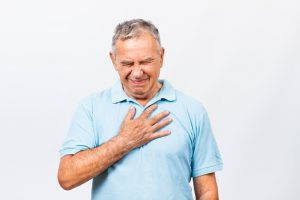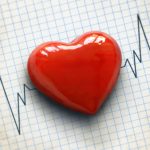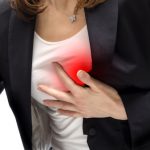 We are all familiar with the term heart disease; however, some people who suffer from heart disease actually have what is referred to as sick sinus syndrome, sinus bradycardia or Tachycardia-bradycardia syndrome. Although rather rare in the younger population, sick sinus syndrome and related conditions are more common as we age.
We are all familiar with the term heart disease; however, some people who suffer from heart disease actually have what is referred to as sick sinus syndrome, sinus bradycardia or Tachycardia-bradycardia syndrome. Although rather rare in the younger population, sick sinus syndrome and related conditions are more common as we age.
Sick sinus syndrome, which is also called sinus node disease, is really the name for a group of heart rhythm dysfunctions. Essentially, if you have sick sinus, your heart’s natural pacemaker doesn’t work the way it is supposed to, so the rhythm of your heart is off. Many people know this as an arrhythmia problem.
Advertisement
Under normal conditions, your sinus node produces a steady pace of electrical impulses, but if you have sick sinus syndrome, you could have a heart rhythm that is too fast, too slow, pauses for long periods, or a heart rhythm that alternates between these problems. Some people with sick sinus syndrome end up needing a pacemaker to help keep their heart in a regular, steady rhythm.
Research shows that about one in 600 people with heart disease who are over the age of 65 suffer from sick sinus syndrome.
Types of sick sinus syndrome
Sinus bradycardia
 A normal heart rate is considered to be from 60 to 100 beats per minute. During sinus bradycardia the natural pacemaker doesn’t send out a signal telling the heart to beat often enough. In other words, the beat rate is too low. Sinus bradycardia is defined as a heart rhythm with a rate below 60 beats per minute. When the heart slows down considerably with sinus bradycardia it can lead to fainting. For example, when the vagus nerve sends a signal to the heart it suddenly drops heart rate. Choking can trigger this response. Back in 2002, former U.S president George Bush, who suffers from sinus bradycardia, made headlines when he chocked on a pretzel and fainted.
A normal heart rate is considered to be from 60 to 100 beats per minute. During sinus bradycardia the natural pacemaker doesn’t send out a signal telling the heart to beat often enough. In other words, the beat rate is too low. Sinus bradycardia is defined as a heart rhythm with a rate below 60 beats per minute. When the heart slows down considerably with sinus bradycardia it can lead to fainting. For example, when the vagus nerve sends a signal to the heart it suddenly drops heart rate. Choking can trigger this response. Back in 2002, former U.S president George Bush, who suffers from sinus bradycardia, made headlines when he chocked on a pretzel and fainted.
We need to keep in mind that many factors impact our heart rate, including age and physical activity. It is perfectly normal for heart rate to increase with exertion and slow down once activity ends.
Sinus arrest
 Heart arrhythmia is not necessarily life-threatening. Many people have irregular heartbeats and lead perfectly normal lives. If an arrhythmia problem falls under the category of sinus arrest it can be more frightening.
Heart arrhythmia is not necessarily life-threatening. Many people have irregular heartbeats and lead perfectly normal lives. If an arrhythmia problem falls under the category of sinus arrest it can be more frightening.
Our natural pacemaker has a central core of “P cells” that produce sinus impulses, and then there are “T cells” that transmit the sinus impulses out into the right atrium, which is one of the four chambers of the heart. If the P cells fail to produce an impulse this can lead to sinus arrest. When sinus arrest occurs it means that electrical impulses that would normally stimulate tissues to contract and cause the heartbeat to stop working.
Sinoatrial block
Sinus arrest has been confused with sinoatrial block, but they are different. While sinus arrest is associated with P cells, sinoatrial block is linked to the way T cells react. When T cells fail to transmit impulses it leads to what doctors call an exit block. What is happening in these cases is that the natural pacemaker’s impulses are blocked from reaching the two upper chambers of the heart.
Tachy-brady syndrome
When a heart alternates between slow and fast rhythms it is sometimes called tachycardia-bradycardia syndrome or tachy-brady. This unusual heart rhythm is often seen in people who are diagnosed with atrial fibrillation.
Atrial fibrillation is an arrhythmia where the heart’s upper chambers quiver. People with tachycardia along with bradycardia have an increased risk of blood clots, which can lead to stroke.
Causes and symptoms of sick sinus syndrome
As mentioned above, the incidence of sick sinus syndrome in young people is uncommon, but it can happen. For instance, heart surgery on the upper chambers can be one of the sick sinus syndrome causes for children. When it comes to the older population, although sick sinus syndrome causes are hard to define, we do know that genetics play a role. We also know coronary artery disease, high blood pressure, and aortic and mitral valve disease can occur along with the condition.
Sick sinus syndrome causes may also be linked to medications. Studies indicate medications such as calcium channel blockers or beta-blockers that are often used to treat high blood pressure, heart disease, as well as other conditions could contribute to the syndrome.
In the majority of cases, surgeons have found that natural pacemakers do not work properly due to age-related wear and tear to the heart muscle.
So how would you know if you have sick sinus syndrome? Well, that can be a little tricky. Sick sinus syndrome symptoms can be the same as many other disorders, but the bottom line is, if you experience any of the following, you should see a doctor.
 Chest pain
Chest pain- Confusion
- Near fainting or fainting
- Fatigue
- Dizziness or feeling light-headed
- Feeling your heart beat (palpitations)
- Shortness of breath without being physical
Genes related to sick sinus syndrome
Genetic research has uncovered mutations in two genes (SCN5A and HCN4) that have been linked to causing sick sinus syndrome in a small number of families. These genes provide instructions for proteins that transport charged atoms into cardiac cells, including cells that make up the sinus node. The flow of these atoms is key to creating electrical impulses that cause heartbeat. Mutations in these genes reduce the flow of the atoms. Such changes can lead to abnormal heartbeats, which of course can be a symptom of sick sinus syndrome.
A variation in another gene, called MYH6 appears to increase the risk of developing sick sinus syndrome. This gene creates mechanical force needed for the cardiac muscle to contract.
Risk factors for sick sinus syndrome
While a lot of investigation is still being conducted on the causes of sick sinus, physicians and surgeons have been able to narrow down a number of sick sinus syndrome risk factors. Here are some that have been associated with the condition:
 Previous heart attack
Previous heart attack- Medications to treat heart disease
- Medications to treat high blood pressure
- Hyperkalemia (too much potassium)
- Sleep apnea
- Thyroid disease
- Heart surgery
In some cases sick sinus syndrome may be linked to conditions such as diphtheria, which is an infection that can damage the heart muscle. It may also be associated with excess iron in the blood, muscular dystrophy and amyloidosis, a condition in which a certain type of protein is deposited in organs or tissues.
Lifestyle changes and natural home remedies
 Exercise and a healthy diet are important for your overall health, especially for those who might be at a higher risk for heart disease. A diet focused on fruits, vegetables and whole grains is best. Maintaining a healthy weight can lower your risk of developing heart-related problems. It can also help you keep blood pressure and cholesterol under control – two factors that can also lead to heart issues.
Exercise and a healthy diet are important for your overall health, especially for those who might be at a higher risk for heart disease. A diet focused on fruits, vegetables and whole grains is best. Maintaining a healthy weight can lower your risk of developing heart-related problems. It can also help you keep blood pressure and cholesterol under control – two factors that can also lead to heart issues.
Avoiding cigarettes and drinking alcohol in moderation is also advisable. Controlling stress is equally important. Your doctor can guide you towards resources that can help you learn coping techniques to handle stress.
One of the most important things you can do is maintain regular check-ups with your doctor.
Advertisement
Staying heart healthy is one way to avoid sick sinus syndrome, but if you are ever diagnosed with the condition, you will be glad to know treatment has come a long way. Some sufferers may only need regular doctor visits to help them monitor and manage their symptoms, while others may require medications or even surgery.
Getting a pacemaker used to be a very scary idea; however, technology has advanced allowing patients with implanted pacemakers to live active, full lives. Today in the United States alone, at least 200,000 people have implanted electronic pacemakers.
There is now interest in growing biological pacemakers. This means one day we may see cells containing pace-making genes being implanted in the heart so those cells can grow into a heart and become the new pacemaker.
